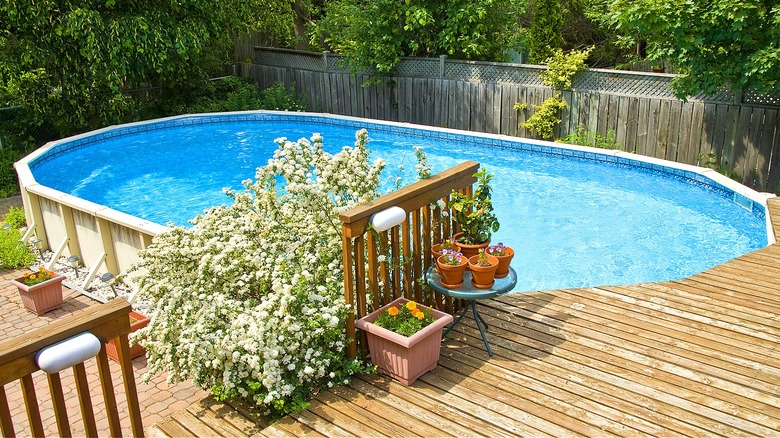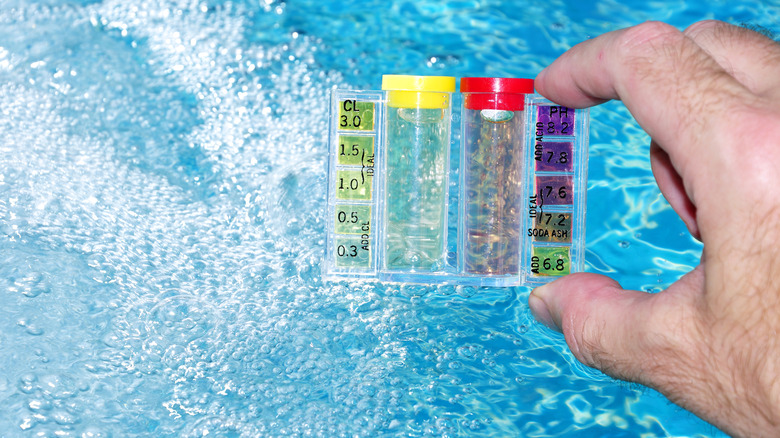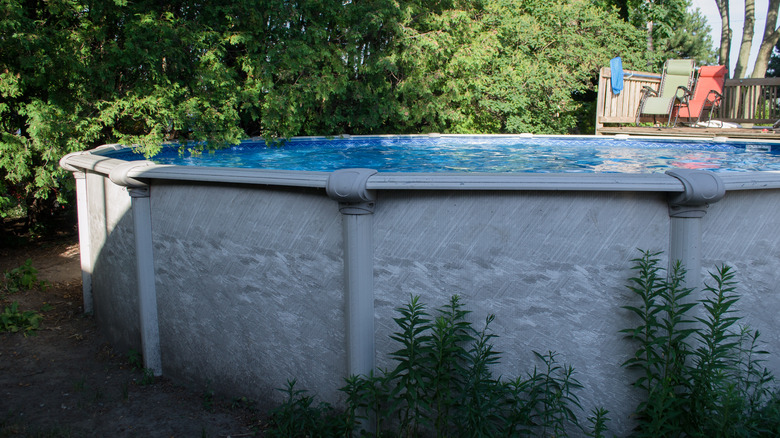Can An Above-Ground Pool Be A Saltwater Pool?
Wouldn't you and your family enjoy having a private, convenient outdoor retreat all summer? Adding an above-ground pool to your yard may be the answer to providing good, clean fun this year and beyond. And if you're considering creating a healthy oasis, consider a saltwater pool. These pools aren't salty like the ocean but use pool-grade salt to cleanse the water without using harsh chemicals. And the saltwater method works perfectly with either an above-ground or an in-ground pool.
The traditional method of keeping a pool clean and inviting involves adding chlorine to purify the water, keeping it safe for swimming by killing bacteria and microorganisms, not to mention preventing algae growth. But people who swim in these pools often complain that the chlorine irritates eyes, nose, and skin. The chemical can also neutralize sunscreen and bleach out swimwear. Worst of all, when you smell that funky chlorine odor, it's not a sign of cleanliness, but just the opposite — it's an indication that the pool is filled with chloramines, chemical compounds that build up when a pool hasn't been properly treated.
An appealing alternative is a saltwater pool. As the American Chemistry Council explains, saltwater pools get their cleaning power from sodium chloride, aka salt, using a salt system or saltwater chlorinator. Don't be confused — chlorine is still involved, it's simply introduced into the pool water via a salt cell, which separates the sodium from the chloride through a process called electrolysis.
Saltwater or chlorine?
Pool experts indicate a salt system is easier to use and maintain, although the initial costs of installing a saltwater chlorinator can be more expensive than the traditional method of adding chlorine in the form of tablets, powder, or liquid. Additionally, storing salt is easier and safer than storing chlorine.
Previously we've offered tips on how to choose the best above-ground pool. Basically, it's figuring out the ideal shape, size, and depth for your home, the location on your lot, and the number of people who will be using the pool regularly. With a saltwater above-ground pool, expert advice is readily available regarding the size of your pool versus how much salt you need, the frequency of adding additional salt, and how to maintain the correct salinity and pH balance in your water.
There are a few downsides. For one, saltwater pool repairs tend to cost more. However, as the system becomes more popular, this could change. Further, salty water can damage nearby plantings or soft stones, so keep an eye on overlarge splashes and rinse materials with fresh water if they get doused with a wave. Finally, salt systems tend not to work at 60 degrees or less, so using a pool heater is necessary to keep the system working, cleansing the water.
Converting your pool to saltwater
We've also looked into the pros and cons of both inground and above-ground pools, and which is better for your family and home. When you consider that the average overall cost of an inground pool is about $35,000, and the cost of an above-ground pool is about $3,000, it's easy to see the appeal of having an above-ground pool. Expense aside, there's some flexibility since often these pools can be installed and then taken down for storage in winter. They can also move with a family to a new location.
If you already have an above-ground pool, you can convert it to a saltwater pool, as saltwater generators are compatible with today's pumps and filter systems. But before converting, check with a pool professional to make sure you're getting the generator with the correct capacity for the size and shape of your pool. Also, chances are your pool's material will work with a saltwater system but check before making the change.


